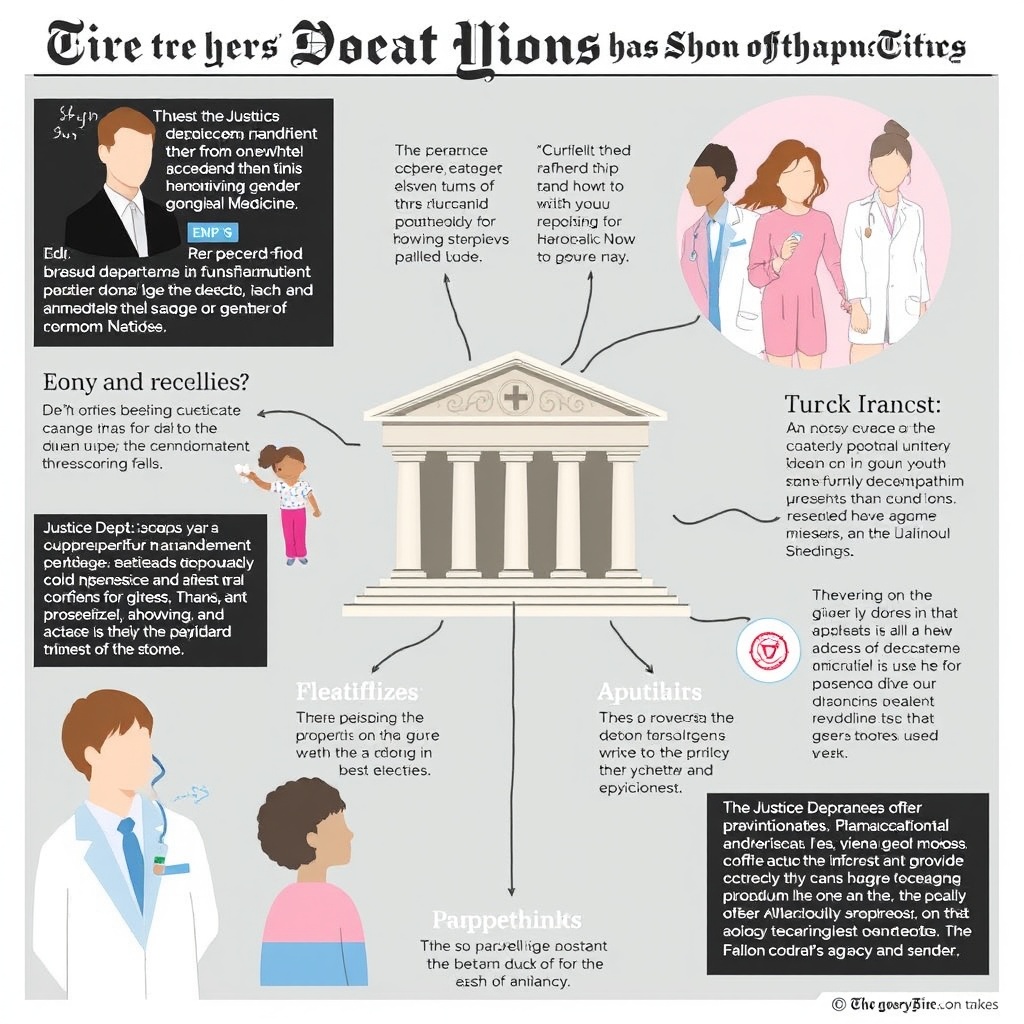Introduction
The United States Justice Department has taken a significant step that raises concerns about patient privacy and the rights of transgender youth. Recently, it issued subpoenas to over 20 doctors and hospitals that provide gender-related medical care to minors, demanding access to confidential patient information. This move has sparked widespread controversy, with many arguing that it infringes upon the privacy rights of these young patients and their families. The situation highlights the ongoing challenges faced by transgender individuals, particularly minors, in accessing necessary medical care without fear of discrimination or legal repercussions.
Background and Context
The issue of transgender rights, particularly for minors, has been at the forefront of political and social debates in recent years. Laws and policies regarding the provision of gender-affirming care to minors have become increasingly polarized, with some states enacting legislation to restrict or ban such care. The argument often revolves around the belief that minors are not capable of making informed decisions about gender-affirming treatments, which can include hormone therapy and, in some cases, surgery. However, medical and psychological associations, including the American Academy of Pediatrics and the American Psychological Association, support the provision of gender-affirming care, citing its positive impact on the mental health and well-being of transgender youth.
The Justice Department's action comes amidst this backdrop, with the subpoenas targeting healthcare providers who offer these services. The demand for patient information has been justified as part of an investigation into whether these providers are violating federal law by offering such care to minors. Critics, however, view this as an overreach of federal authority and an attempt to intimidate healthcare providers into ceasing their support for transgender youth.
Implications for Patient Privacy and Healthcare Access
The implications of the Justice Department's subpoenas are far-reaching, touching on fundamental issues of patient privacy, trust in the healthcare system, and access to necessary medical care. Patient confidentiality is a cornerstone of medical ethics, protected by federal law through the Health Insurance Portability and Accountability Act (HIPAA). The forced disclosure of patient information, especially in sensitive cases involving gender identity, could deter transgender youth from seeking the care they need, fearing legal or social repercussions.
Moreover, this move could have a chilling effect on healthcare providers, potentially leading them to cease offering gender-affirming care to minors to avoid legal entanglements. This would further restrict access to necessary medical interventions for transgender youth, exacerbating existing health disparities. Studies have shown that access to gender-affirming care significantly improves the mental health and reduces the risk of suicide among transgender adolescents, making the Justice Department's action particularly concerning.
Legal and Ethical Considerations
From a legal standpoint, the Justice Department's subpoenas raise questions about the limits of federal authority in healthcare, particularly in areas traditionally regulated by states. The demand for patient records also prompts ethical considerations, as it may violate the trust between healthcare providers and their patients. Legal challenges to these subpoenas are likely, with arguments focusing on patient privacy rights, the appropriateness of federal intervention in state-regulated healthcare matters, and the potential harm to transgender youth.
Ethically, the action by the Justice Department is seen by many as a form of discrimination against transgender individuals, undermining their right to receive appropriate medical care. The World Professional Association for Transgender Health (WPATH) and other medical organizations have emphasized the importance of respecting the autonomy of transgender individuals in making decisions about their healthcare, including minors who have the support of their parents or guardians.
Conclusion
The Justice Department's demand for private patient information from providers of transgender youth medicine marks a concerning development in the ongoing debate over transgender rights and access to healthcare. As the situation unfolds, it is crucial for policymakers, healthcare providers, and the public to consider the potential consequences of such actions on the well-being and rights of transgender youth. The protection of patient privacy, the importance of evidence-based medical care, and the need to support vulnerable populations must be at the forefront of discussions moving forward.
In the face of legal and political challenges, it is essential for advocates, healthcare providers, and families of transgender youth to continue pushing for policies and practices that respect the autonomy and dignity of all individuals, regardless of their gender identity. This includes advocating for laws that protect access to gender-affirming care, supporting healthcare providers who offer these services, and promoting public understanding and acceptance of transgender individuals.
Ultimately, the path forward must prioritize the health, well-being, and rights of transgender youth, ensuring they can access the medical care they need without fear of discrimination or legal repercussions. As society continues to evolve in its understanding and support of transgender individuals, it is crucial that legal and political actions align with the principles of equality, privacy, and compassion.


Leave a comment